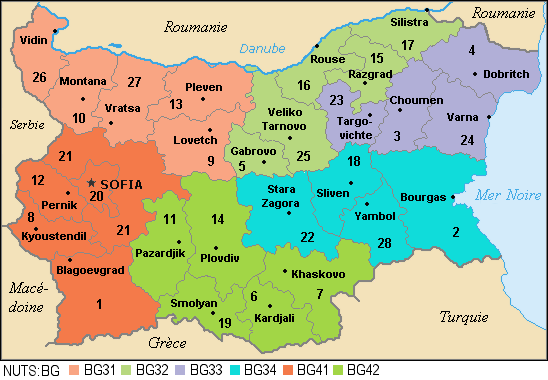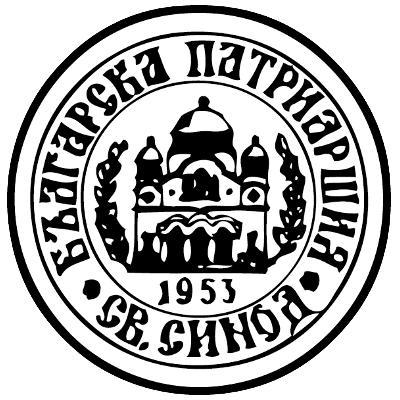|
Koprivshtitsa Municipality
Koprivshtitsa Municipality is a municipality in Sofia Province, Bulgaria. The only settlement and administrative center of the municipality is Koprivshtitsa. Demography Religion According to the latest Bulgarian census of 2011, the religious composition, among those who answered the optional question on religious identification, was the following: References [...More Info...] [...Related Items...] OR: [Wikipedia] [Google] [Baidu] |
Municipalities Of Bulgaria
The 28 Provinces of Bulgaria, provinces of Bulgaria are divided into 265 municipalities (община, ''obshtina''). Municipalities typically comprise multiple towns, villages and settlements and are governed by a mayor who is elected by popular majority vote for a four-year term, and a municipal council which is elected using proportional representation for a four-year term. The creation of new municipalities requires that they must be created in a territory with a population of at least 6,000 and created around a designated settlement. They must also be named after the settlement that serves as the territory's administrative center, among other criteria. The council of a municipality is further permitted to create administrative subdivisions: mayoralties (''kmetstvo''), settlements (''naseleno myasto''), and wards or quarters (''rayon''). Mayoralties are overseen by elected mayors and typically comprises one or more villages or towns; they must contain a population of at leas ... [...More Info...] [...Related Items...] OR: [Wikipedia] [Google] [Baidu] |
Provinces Of Bulgaria
The provinces of Bulgaria ( bg, области на България, oblasti na Bǎlgarija) are the first-level administrative subdivisions of the country. Since 1999, Bulgaria has been divided into 28 provinces ( bg, области, links=no – ''oblasti;'' singular: – ''oblast''; also translated as "regions") which correspond approximately to the 28 districts (in bg, links=no, окръг – ''okrug, okrǎg'', plural: – ''okrǎzi''), that existed before 1987. The provinces are further subdivided into 265 municipalities (singular: – ''obshtina'', plural: – ''obshtini''). Sofia – the capital city of Bulgaria and the largest settlement in the country – is the administrative centre of both Sofia Province and Sofia City Province (Sofia-Grad (toponymy), grad). The capital is included (together with three other cities plus 34 villages) in Sofia Capital Municipality (over 90% of whose population lives in Sofia), which is the sole municipality comprising Sofia City ... [...More Info...] [...Related Items...] OR: [Wikipedia] [Google] [Baidu] |
Sofia Province
Sofia Province ( bg, Софийска област, translit=Sofiyska oblast) is a province (''oblast'') of Bulgaria. The province does not include Sofia in its territories, but Sofia remains its administrative center. The province borders on the provinces of Pernik, Kyustendil, Blagoevgrad, Pazardzhik, Plovdiv, Lovech, Vratsa, Montana and "Sofia City Province" (which is in a separate ''oblast'', see Sofia Administration), and borders with Serbia to the northwest. History Prehistory and antiquity Archaeological excavations near Chavdar suggest that the region has been settled by humans as early as 7,000 years ago. The earliest evidence of a mass settlement dates back to Thracian times, including ''tumuli'' (burial mounds) which remain poorly studied. According to Thucydides, the areas north of Vitosha were inhabited by the Tilataei and the Treri. The Triballi were also known to have inhabited the region around Serdica. The Serdi, a Celtic tribe that appeared in place of the v ... [...More Info...] [...Related Items...] OR: [Wikipedia] [Google] [Baidu] |
Koprivshtitsa
Koprivshtitsa ( bg, Копривщица, pronounced , from the Bulgarian word , ''kopriva'', meaning "nettle") is a historic town in the Koprivshtitsa Municipality in Sofia Province, central Bulgaria, lying on the Topolnitsa River among the Sredna Gora mountains. It was one of the centres of the April uprising in 1876 and is known for its authentic Bulgarian architecture and for its folk music festivals, making it a tourist destination. Koprivshtitsa preserves the atmosphere of the Bulgarian National Revival period of the 19th century. The town is huddled in the mountain-folds, 111 km east of Sofia. The town has a number of architectural monuments from the period, 383 in all, most of which have been restored to their original appearance. Collections of ethnographical treasures, old weapons, National Revival works of art, fretwork, household weaves and embroidery, national costumes and typical Bulgarian jewelry have also been preserved. It was here that the first shot of t ... [...More Info...] [...Related Items...] OR: [Wikipedia] [Google] [Baidu] |
Bulgaria
Bulgaria (; bg, България, Bǎlgariya), officially the Republic of Bulgaria,, ) is a country in Southeast Europe. It is situated on the eastern flank of the Balkans, and is bordered by Romania to the north, Serbia and North Macedonia to the west, Greece and Turkey to the south, and the Black Sea to the east. Bulgaria covers a territory of , and is the sixteenth-largest country in Europe. Sofia is the nation's capital and largest city; other major cities are Plovdiv, Varna and Burgas. One of the earliest societies in the lands of modern-day Bulgaria was the Neolithic Karanovo culture, which dates back to 6,500 BC. In the 6th to 3rd century BC the region was a battleground for ancient Thracians, Persians, Celts and Macedonians; stability came when the Roman Empire conquered the region in AD 45. After the Roman state splintered, tribal invasions in the region resumed. Around the 6th century, these territories were settled by the early Slavs. The Bulgars, led by Asp ... [...More Info...] [...Related Items...] OR: [Wikipedia] [Google] [Baidu] |
Administrative Center
An administrative center is a seat of regional administration or local government, or a county town, or the place where the central administration of a commune A commune is an alternative term for an intentional community. Commune or comună or comune or other derivations may also refer to: Administrative-territorial entities * Commune (administrative division), a municipality or township ** Communes of ... is located. In countries with French as administrative language (such as Belgium, Luxembourg, Switzerland and many African countries), a (, plural form , literally 'chief place' or 'main place'), is a town or city that is important from an administrative perspective. Algeria The capital of an Algerian province is called a chef-lieu. The capital of a Districts of Algeria, district, the next largest division, is also called a chef-lieu, whilst the capital of the lowest division, the Municipalities of Algeria, municipalities, is called agglomération de chef-lieu (chef-lieu ... [...More Info...] [...Related Items...] OR: [Wikipedia] [Google] [Baidu] |
Bulgarian Orthodox Church
The Bulgarian Orthodox Church ( bg, Българска православна църква, translit=Balgarska pravoslavna tsarkva), legally the Patriarchate of Bulgaria ( bg, Българска патриаршия, links=no, translit=Balgarska patriarshiya), is an autocephalous Orthodox jurisdiction. It is the oldest Slavic Orthodox church, with some 6 million members in Bulgaria and between 1.5 and 2 million members in a number of European countries, the Americas, Australia, New Zealand and Asia. It was recognized as autocephalous in 1945 by the Ecumenical Patriarchate of Constantinople. History Early Christianity The Bulgarian Orthodox Church has its origin in the flourishing Christian communities and churches set up in the Balkans as early as the first centuries of the Christian era. Christianity was brought to the Balkans by the apostles Paul and Andrew in the 1st century AD, when the first organised Christian communities were formed. By the beginning of the 4th ce ... [...More Info...] [...Related Items...] OR: [Wikipedia] [Google] [Baidu] |
Catholicism In Bulgaria
The Catholic Church is the fourth largest religious congregation in Bulgaria, after Eastern Orthodoxy, Islam and Protestantism. Its roots in the country date to the Middle Ages and are part of the worldwide Catholic Church, under the spiritual leadership of the Pope in Rome. Location and number In the Bulgarian census of 2011, a total of 48,945 people declared themselves to be Catholics, up from 43,811 in the previous census of 2001 though down as compared to 53,074 in 1992. The vast majority of the Catholics in Bulgaria in 2001 were ethnic Bulgarians and the rest belonged to a number of other ethnic groups such as Croatians, Italians, Arabs and Germans. Bulgarian Catholics live predominantly in the regions of Svishtov and Plovdiv and are mostly descendants of the heretical Christian sect of the Paulicians, which converted to Catholicism in the 16th and 17th centuries. The largest Catholic Bulgarian town is Rakovski in Plovdiv Province. Ethnic Bulgarian Catholics known as the B ... [...More Info...] [...Related Items...] OR: [Wikipedia] [Google] [Baidu] |
Protestantism In Bulgaria
Protestantism is a branch of Christianity that follows the theological tenets of the Protestant Reformation, a movement that began seeking to reform the Catholic Church from within in the 16th century against what its followers perceived to be growing errors, abuses, and discrepancies within it. Protestantism emphasizes the Christian believer's justification by God in faith alone (') rather than by a combination of faith with good works as in Catholicism; the teaching that salvation comes by divine grace or "unmerited favor" only ('); the priesthood of all faithful believers in the Church; and the ''sola scriptura'' ("scripture alone") that posits the Bible as the sole infallible source of authority for Christian faith and practice. Most Protestants, with the exception of Anglo-Papalism, reject the Catholic doctrine of papal supremacy, but disagree among themselves regarding the number of sacraments, the real presence of Christ in the Eucharist, and matters of ecclesiastical ... [...More Info...] [...Related Items...] OR: [Wikipedia] [Google] [Baidu] |
Islam In Bulgaria
Islam in Bulgaria is a minority religion and the second largest religion in the country after Christianity. According to the 2021 Census, the total number of Muslims in Bulgaria stood at 638,7082012 Bulgarian census (in Bulgarian) corresponding to 10.8% of the population.Bulgaria The World Factbook. CIA According to a 2017 estimate, Muslims make up 15% of the population. Ethnically, Muslims in Bulgaria are , |



_(10004827914).jpg)


